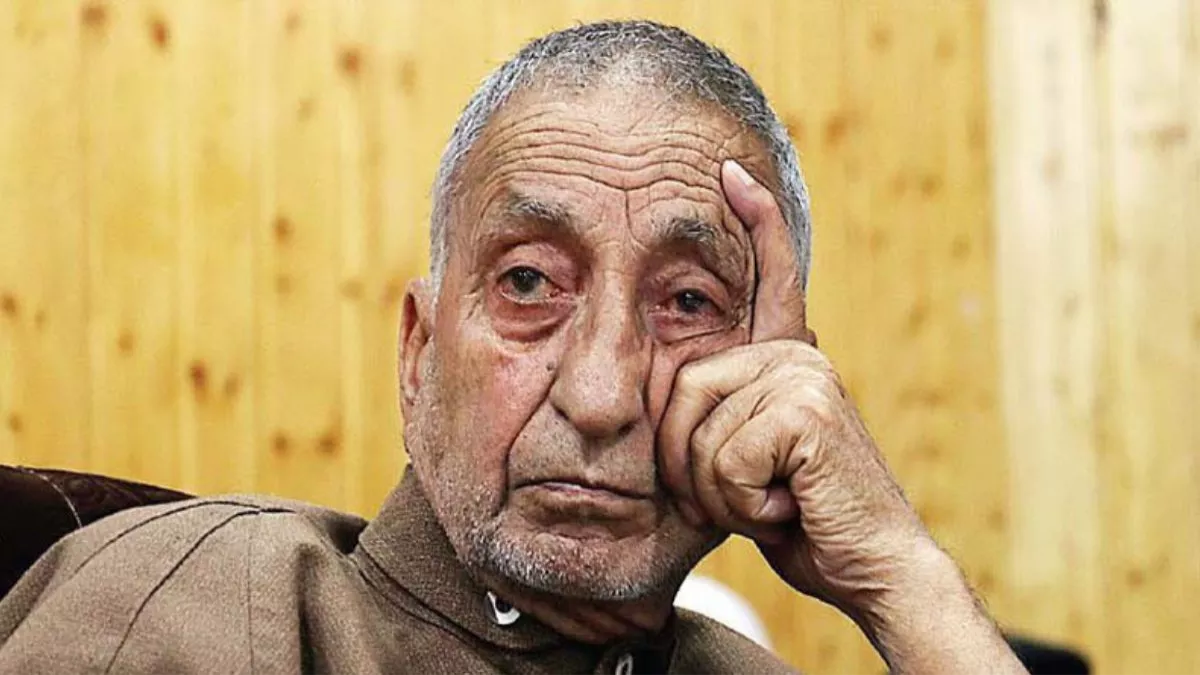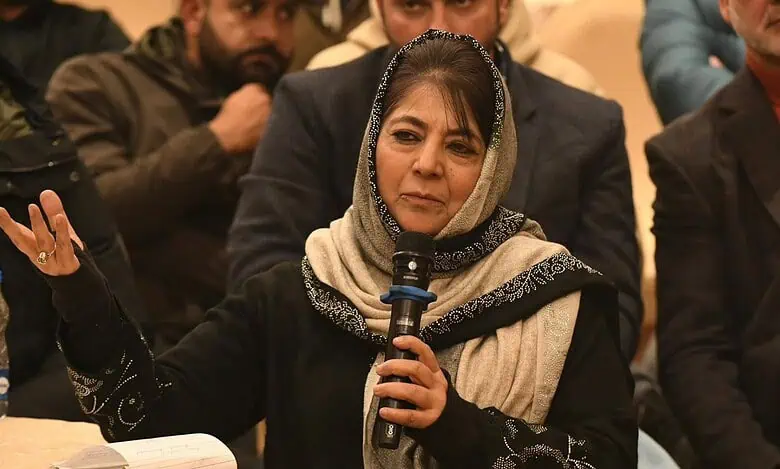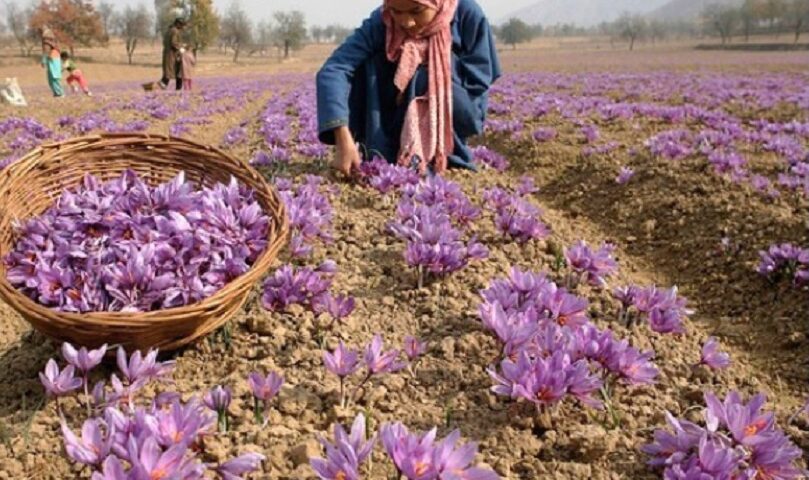Midnight Farewell Under Surveillance
By: Javid Amin | 18 September 2025
The End of an Era
Abdul Ghani Bhat, one of the most recognizable figures of Kashmir’s separatist movement and former chairman of the Hurriyat Conference, passed away at the age of 87. Known for his philosophical depth, eloquence, and moderation, Bhat’s death marks the quiet fading of a generation that once dominated Kashmir’s separatist discourse.
His departure comes at a time when separatist politics in the Valley lies fragmented, muted, and heavily constrained by state restrictions. The manner of his burial—a midnight funeral under tight surveillance—speaks volumes about how the landscape he helped shape has dramatically changed.
A Midnight Farewell: Politics in the Shadows
Bhat’s funeral was conducted at midnight, with limited participation allowed. Several political leaders and activists were reportedly either detained, confined to their homes, or blocked from attending.
The muted farewell contrasts sharply with the mass funerals that once followed the deaths of separatist leaders or militants in Kashmir. Instead, his burial mirrored the climate of control and surveillance that defines present-day politics in the Valley.
For a man who often spoke of dialogue, dignity, and collective destiny, this subdued ending was symbolic—his final rites held in silence, his political peers caged.
Scholar, Orator, Separatist
Before politics, Abdul Ghani Bhat was a professor of Persian, deeply rooted in literature and scholarship. His intellectual leanings shaped his politics: speeches laced with poetry, references to history, and philosophical musings that elevated separatist discourse beyond slogans.
He entered separatist politics during the 1990s, eventually rising to become chairman of the Hurriyat Conference, the umbrella organization of separatist parties. Unlike hardliners, Bhat often advocated dialogue over confrontation, arguing that Kashmir’s destiny could only be shaped through tripartite talks between India, Pakistan, and Kashmiris.
“Politics is not about power—it is about people,” he once remarked, distilling his belief in human-centric negotiations rather than militant struggle.
A Moderate in a Time of Extremes
Bhat’s political journey was defined by moderation—sometimes to the frustration of both India and fellow separatists. While New Delhi often dismissed separatists as proxies for Pakistan, hardliners within Kashmir criticized leaders like Bhat for “softening” their stance.
Yet, he remained steadfast in urging intellectual debate over violence. His speeches highlighted the futility of bloodshed and the necessity of dialogue, often citing examples from Islamic philosophy and world history.
Legacy in a Silenced Valley
Abdul Ghani Bhat’s death underscores the vacuum in Kashmir’s separatist politics. Once, leaders like him, Mirwaiz Umar Farooq, Syed Ali Shah Geelani, and Yasin Malik dominated the discourse. Today, the movement is scattered:
-
Geelani is gone.
-
Yasin Malik is in jail.
-
Mirwaiz Umar Farooq remains restricted.
-
Others are silenced, exiled, or under watch.
His midnight funeral—with politicians caged and streets under security cordon—was not just about one man’s passing, but about the state of dissent in Kashmir.
Conclusion: The Silence After the Oratory
Abdul Ghani Bhat leaves behind more than memories of speeches and political statements. He leaves a reminder that separatist politics in Kashmir was once as much about ideas as it was about identity.
His life spanned the arc of Kashmir’s separatist journey—from the intellectual debates of the 1990s to the post-Article 370 silence. His midnight farewell may have been subdued, but the questions he raised about dignity, dialogue, and the people’s role in politics remain unanswered.
For now, Kashmir has lost not only a leader but also a voice that insisted on words over weapons.




